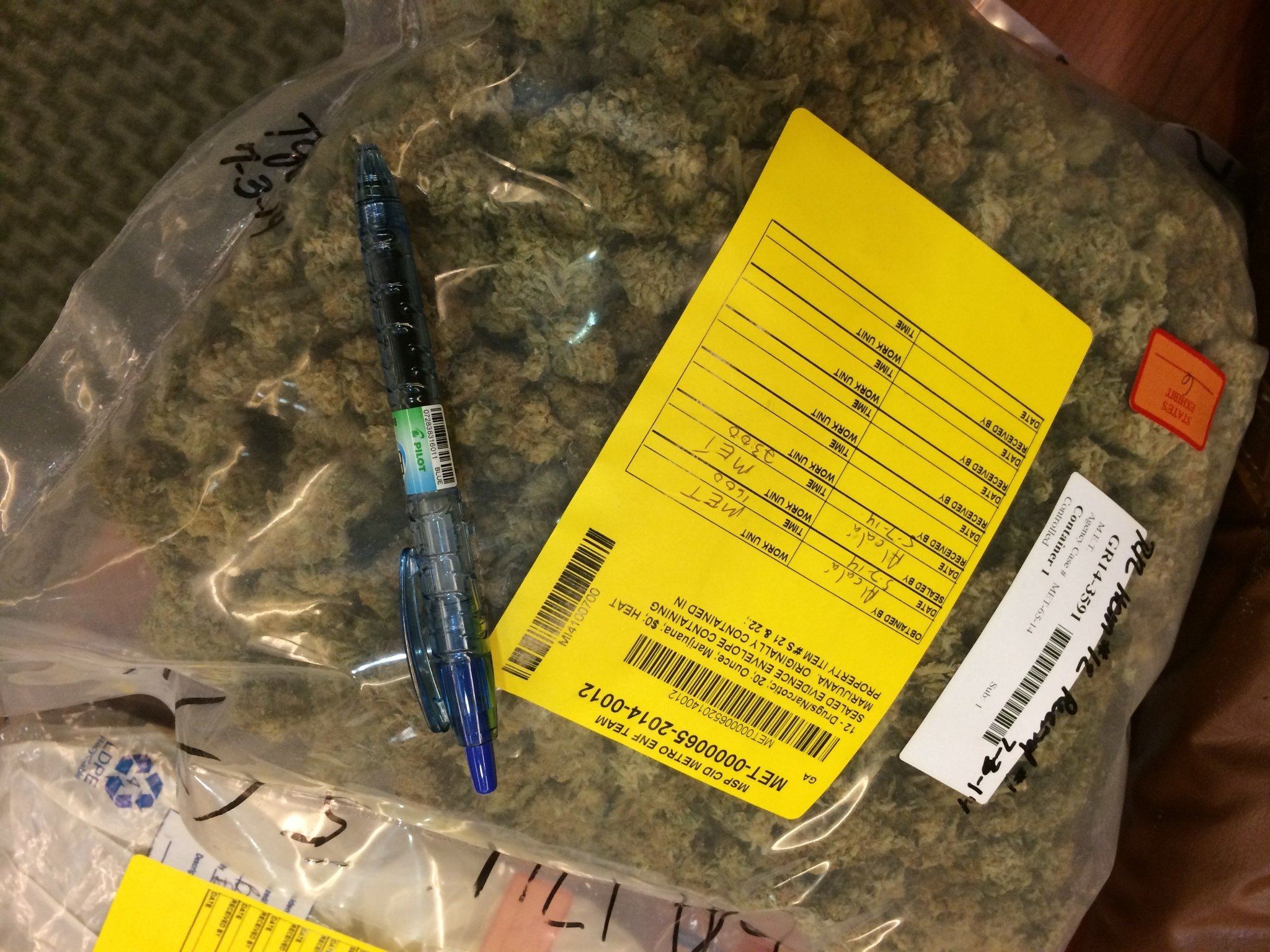Detroit police officers in the city's now-defunct narcotics unit wrongly detained a Detroit resident after illegally searching his home with a warrant based on false statements, according to a lawsuit filed in Wayne County Circuit Court.
Anthony and Elaine McCallum say two officers executed a search warrant in 2013 on their home that was based on false statements given by a Detroit law enforcement official in a sworn affidavit, according to the complaint. The officers physically assaulted Anthony and threatened Elaine "for no reason," the complaint, filed in November, stated.
As a result of the April 2013 search, Anthony McCallum was charged with intent to deliver and manufacture marijuana, intent to deliver and manufacture less than 50 grams of cocaine, firearms possession by a felon, and felony firearms, court records show — but all charges were eventually dismissed. McCallum was convicted in 1997 of assault with intent to commit sexual penetration, according to the Michigan State Police sex offender registry.
The McCallums filed their seven-page complaint against two officers who conducted the search of their home, Sgt. Stephen Geelhood and "Officer Blue," who have been with the Detroit Police Department since 1994 and 1997, respectively, according to court records. In briefs filed by the McCallums attorney, Geelhood and Blue are identified as "undercover" officers in the city's "now disbanded narcotics unit." (The city later identified Blue in an email to
MT as Officer Abraham Blue.)
Upon entering the couple's home, the officers assaulted Anthony McCallum, handcuffed and arrested the 47-year-old "without probable cause," and wrongfully pursued prosecution, according to the complaint. It's unclear if more officers were involved in the search.
"Defendants wrongfully pursued prosecution of Plaintiff based on their own wrongful conduct," the complaint alleges.
Thomas Kuhn, co-counsel representing the McCallums, declined comment. Detroit police said Geelhood and Blue remain employed with the department, but declined to comment on the pending litigation.
How Detroit police officers went about getting the search warrant was apparently the chief reason Anthony McCallum's charges were dropped almost instantaneously, court records show.
Here's what happened: Police obtained the warrant based on an affidavit signed by Officer Amy Matelic, according to a court transcript from an Aug. 8, 2013 hearing on the charges brought against Anthony McCallum, who initially plead not guilty on each count. In the sworn affidavit, Matelic stated she received a tip from a confidential informant that cocaine was being sold and stored within McCallum's home. The informant provided tips in the past that led to arrests and generated cases in 3rd Circuit Court and 36th District Court, according to the transcript.
The problem? According to the transcript, Matelic had no direct conversation with the informant or personal knowledge of the tip; another officer, Gil Hood, actually received it. But, for unclear reasons, Hood didn't sign the affidavit.
"So the affidavit I mean really just cannot be described as anything other than false in that respect," said Wayne County Circuit Court Judge Michael Hathaway, during the 2013 hearing.
The only thing "honestly averred in the affidavit," Hathaway said, is that Matelic and Hood conducted surveillance of McCallum's property. "That in and of itself does not provide probable cause for the warrant," Hathaway said.
In his parting words, Hathaway offered this to Anthony McCallum: "You have dodged a bullet. It is highly unlikely that this will ever happen again. And I strongly urge you to clean up your act."
The case and charges against McCallum were dismissed following the hearing in Hathaway's courtroom.
Peter Henning, a Wayne State University law professor and former federal prosecutor, said the key to affidavits is the veracity of the informant.
"You have to establish the credibility of the tipster and or corroborate what was provided," Henning told
MT on Wednesday. "So I expect the affidavit wasn't just, 'Hey, I got a tip' — but it was, 'Hey, I got a tip from someone I know and here's what I know.'"
Officer Matelic's decision to sign the affidavit, when she had no personal knowledge of the tip, was "either sloppy practices or it shows the path of least resistance figuring no one would ever notice," Henning said.
"Get your affidavit blown — that would blown the warrant," he said. "It's not like they said, 'Oh, let's let a bad guy go' ... it did not meet the valid, constitutional requirements for a warrant."
The McCallums lawsuit, which also names the city of Detroit as a defendant, seeks compensatory damages in excess of $25,000 and attorney fees. A motion hearing is scheduled March 20 before Judge Annette Berry in Wayne County Circuit Court.
Detroit's narcotics unit was disbanded last summer by Detroit Police Chief James Craig. Since August, it has reportedly been been the focus of an FBI probe. (David Porter, special agent in the FBI's Detroit bureau declined comment Thursday.)
Last month, it was also at the center of a separate lawsuit filed by a Warren couple. The couple, Timothy and Hatema Davis, allege officers
forcibly entered their home in December 2013with assault rifles drawn, demanded to know if they had any money, and seized nearly fifty marijuana plants, according to the complaint.
Timothy Davis — who said he was then taken to a seemingly abandoned building and questioned for five hours — was legally licensed to operate a marijuana grow facility, the complaint says.
The Davises say in the complaint the Detroit officers who conducted the raid never presented a search warrant.
The couple was handcuffed while officers "extensively tore apart Plaintiffs' property and removed ... nearly fifty marijuana plants and other related legitimate and lawful by-products of Plaintiffs' business," the complaint says.
The Davises were eventually released and never charged with any violations. The case remains pending.




